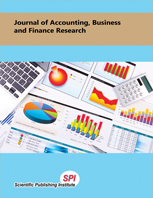An Investigation on the Effectiveness of Forensic Audit as a Tool for Fraud Detection and Prevention
DOI:
https://doi.org/10.20448/2002.102.49.67Keywords:
Forensic audit, Fraud.Abstract
There has been a rapid increase in the number of fraud and corruption cases despite statutory audits being carried out. This led to the rise in demand for forensic auditing services and in response audit firms began offering this service. The audit firms however suffer from lack of adequate resources, training, knowledge and practical experience. Taking into consideration the impact of these factors this research sought to investigate the effectiveness of forensic audit as a tool for the detection and prevention of fraudulent activities using a Chartered Accountancy Company in Zimbabwe as a case study. The research utilized a mixed approach whereby quantitative data was gathered from closed ended questions quantified using the Likert scale. Qualitative data was gathered from open ended questions and 3 interviews were also conducted. A total of 20 questionnaires were distributed using random sampling, 19 were returned and one lost in the process. To analyze the data the multiple regression method was employed and data was presented using bar graphs and tables supported by explanations. The research revealed that there is a positive relationship between training, level of education and ability to detect and prevent fraud. It was also found that litigation support service has a huge role to play in the effectiveness of forensic auditing in detecting and preventing fraud. Recommendations were made towards increase in training sessions as well as engaging in training and development programs to fully equip auditors with knowledge.


